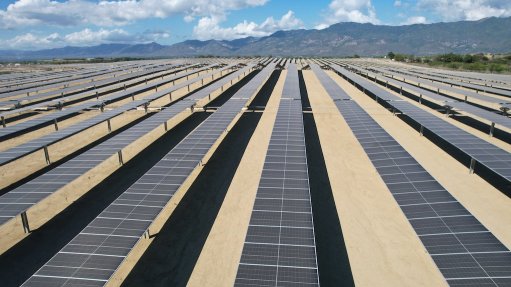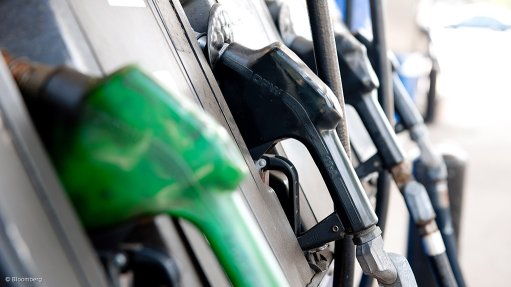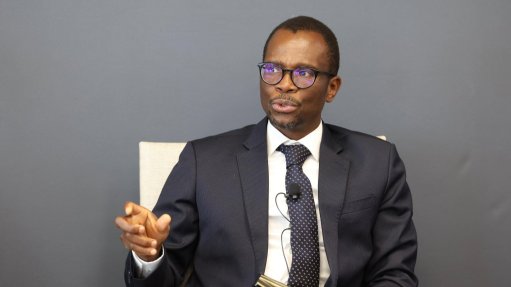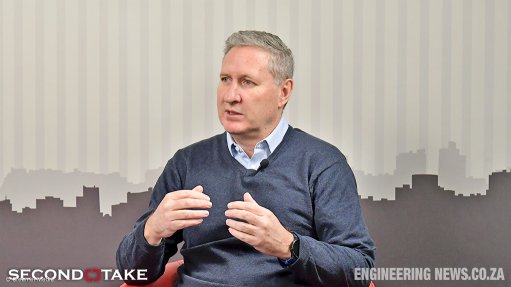Looking to a brighter future: How security becomes synonymous with energy efficiency
This article has been supplied and will be available for a limited time only on this website.
By: Rudie Opperman - Engineering & Training Manager MEA at Axis Communications
Africa’s energy journey is defined by uncertainty and opportunity, with entire nations and industries working hard to build resilience, reinforce supply, and explore renewable and alternative sources. That last part is essential, as while Africa may be the smallest contributor to global CO2 emissions[1], part of its energy journey is to lower emissions and prioritise sustainability across companies, sectors, and industries. Case in point, Africa saw an increase of 4.2 GW in renewable energy capacity in 2024.[2]
But also critical to this process is making in energy efficiency, even in sectors like security where manufacturers and their customers are looking at ways to optimise solutions and make them an active component of reducing their energy consumption. The trend is being driven by multiple factors, culminating in reshaping the sector’s relationship with sustainability.
Innovation and smart installations
As is the case with any sector, increasing use of renewable energy sources in the security industry is being driven by a goal to reduce emissions. While change at a macro level may come slowly, such as transitioning an entire national power grid, renewable sources, most prominently solar, along with energy-saving measures are being integrated into specific security solution use cases.
One such use case is ‘smart poles’, which are being installed by cities and municipalities to help proactively reduce crime and contribute to smart city development.[3] Such installations offer a wide range of functions such as integrated network surveillance cameras, intercoms, and even environmental sensors. Smart poles are also a response to calls to save energy but by doing so, do not compromise their core function of lighting up dark areas and improving overall safety and security. Smart poles also take energy savings to a new level, not only by powering down during the day, but with the help of sensors that detect people or vehicles, can dim surrounding areas in the event they cannot sense anyone.
Such installations are applicable across all industries. Renewable energy sources are also being deployed as part of temporary or mobile solutions. Event planners or engineers can mount solar panels on trailers or the back of vehicles, taking them where they need to go or places where energy and network infrastructure are limited. Devices fitted with power profiles or low power modes let operators configure their devices to save energy without compromising solution performance.[4]
In security use cases, operators can also deploy different technologies based on environmental conditions. Network cameras equipped with adaptive IR-LED illumination can provide high-quality images in areas with minimal lighting, or let operators dim an area’s lighting without impacting surveillance. At the end of the day, operators in Africa end up using less power than they normally would.
AI at the edge
Africa’s tech landscape is undergoing serious development thanks to the growth of a continent-wide data centre industry. Hyperscale cloud service providers are spending vast sums of capital to build data centres to address a growing demand driven by artificial intelligence (AI).[5] AI’s computational demands create a huge demand for energy, encompassing everything right down to a centre’s individual servers, and so there is a need to optimise energy consumption in its provision.
One way operators are addressing this is by balancing on-premise AI with AI at the edge. Edge computing, where computations take place at the edge of the network and closer to the point of origin for data, helps mitigate the energy consumption of data centres by deploying AI where it is most power efficient.
AI processing at the edge consumes less power than processing on a server, which is what makes them particularly ideal in security use cases where devices have to analyse data from a visual sensor. In turn, this helps to minimise bandwidth and storage requirements by reducing the amount of data that has to be sent across the network, logically resulting in energy savings from a network standpoint.
The demand for power drives the need for change
Electricity demand in Sub-Saharan Africa is set to increase by approximately 5% every year till 2027, even as consumption growth in the region is hampered by a lack of supply.[6] Even as renewable sources start to take up a greater share of the continent’s energy mix, concerns surrounding supply and resilience will continue, and part of addressing those concerns is by incorporating power saving technologies and solutions into public and enterprise infrastructure.
Energy efficiency should be a priority for all industries, including when it comes to security. Businesses and individuals alike have an opportunity to contribute through product development and deployments, and it’s by working together that we not only reduce emissions, but make renewable energy a cornerstone of our technological infrastructure and systems.
Comments
Press Office
Announcements
What's On
Subscribe to improve your user experience...
Option 1 (equivalent of R125 a month):
Receive a weekly copy of Creamer Media's Engineering News & Mining Weekly magazine
(print copy for those in South Africa and e-magazine for those outside of South Africa)
Receive daily email newsletters
Access to full search results
Access archive of magazine back copies
Access to Projects in Progress
Access to ONE Research Report of your choice in PDF format
Option 2 (equivalent of R375 a month):
All benefits from Option 1
PLUS
Access to Creamer Media's Research Channel Africa for ALL Research Reports, in PDF format, on various industrial and mining sectors
including Electricity; Water; Energy Transition; Hydrogen; Roads, Rail and Ports; Coal; Gold; Platinum; Battery Metals; etc.
Already a subscriber?
Forgotten your password?
Receive weekly copy of Creamer Media's Engineering News & Mining Weekly magazine (print copy for those in South Africa and e-magazine for those outside of South Africa)
➕
Recieve daily email newsletters
➕
Access to full search results
➕
Access archive of magazine back copies
➕
Access to Projects in Progress
➕
Access to ONE Research Report of your choice in PDF format
RESEARCH CHANNEL AFRICA
R4500 (equivalent of R375 a month)
SUBSCRIBEAll benefits from Option 1
➕
Access to Creamer Media's Research Channel Africa for ALL Research Reports on various industrial and mining sectors, in PDF format, including on:
Electricity
➕
Water
➕
Energy Transition
➕
Hydrogen
➕
Roads, Rail and Ports
➕
Coal
➕
Gold
➕
Platinum
➕
Battery Metals
➕
etc.
Receive all benefits from Option 1 or Option 2 delivered to numerous people at your company
➕
Multiple User names and Passwords for simultaneous log-ins
➕
Intranet integration access to all in your organisation





















